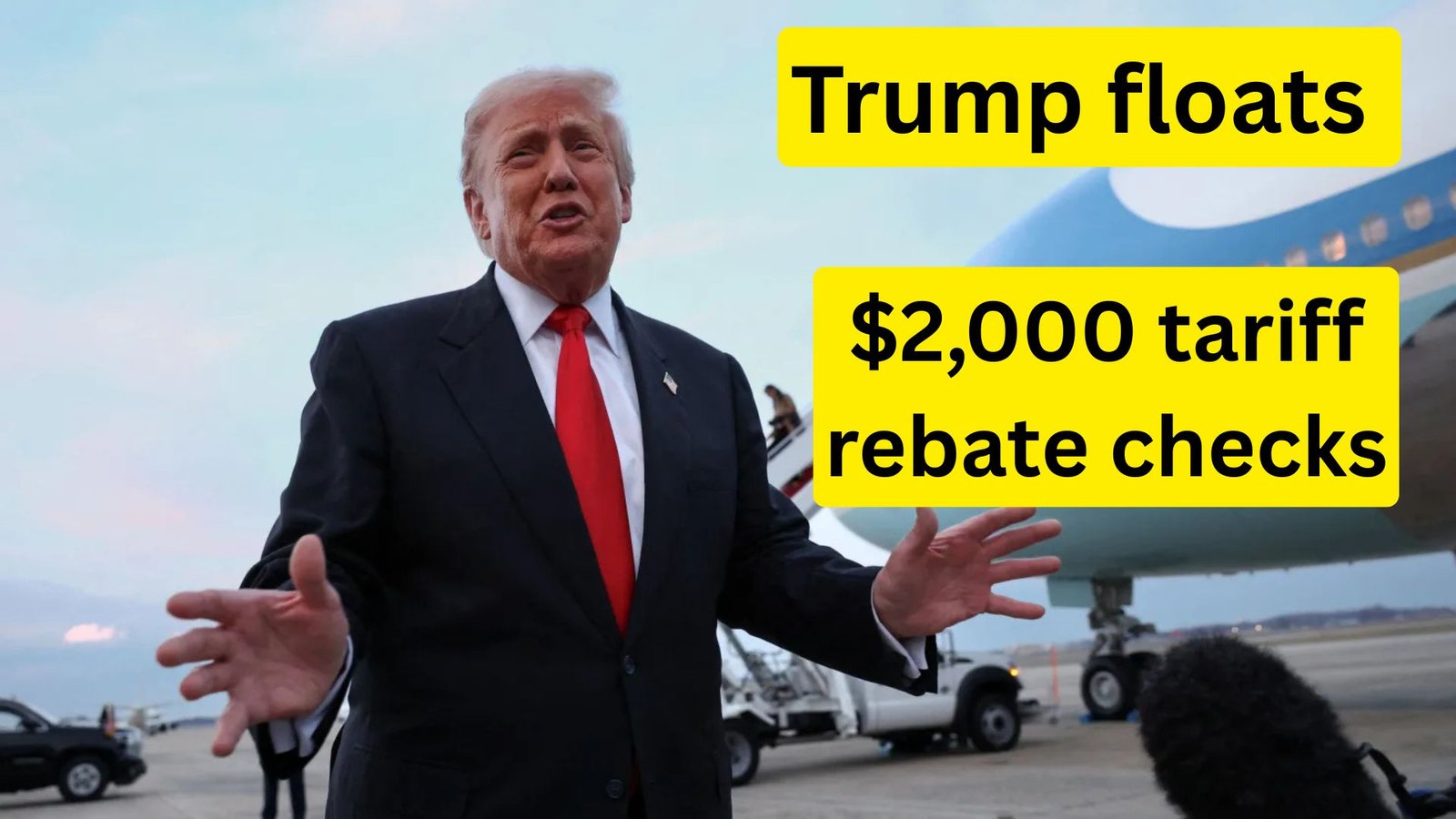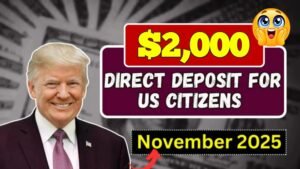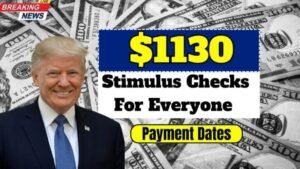In a surprising move that’s got everyone talking, President Donald Trump is pushing for $2,000 tariff rebate checks to land in American pockets. Imagine getting a fat check from the government to offset rising costs – sounds like a dream, right? But is this tariff rebate plan for real, or just hot air?
As families battle higher prices on everyday items and skyrocketing health bills, Trump’s idea could be a game-changer. Or it might fuel even bigger problems like inflation. Dive in to uncover the truth behind this buzzworthy proposal, straight from his recent Truth Social rants. We’ll break it down simply, explore the upsides and pitfalls, and crunch the numbers so you know exactly what it means for your wallet.
What Are These $2,000 Tariff Rebate Checks All About?
Picture this: Trump hopping on Truth Social over the weekend, firing off posts like fireworks. On Saturday, he urged Republicans to pump money straight into folks’ health savings accounts – those handy pots for medical expenses. Then, on Sunday, he dropped the bombshell: a “tariff dividend” of at least $2,000 per person, skipping the rich crowd, for “everyone” else. It’s like the COVID stimulus checks of old, but tied to cash from import taxes.
Trump’s been teasing this since July, calling it a “little rebate” from tariff revenue. And get this – Senator Josh Hawley jumped on board with the American Worker Rebate Act of 2025, aiming to send out checks funded by these very tariffs as early as this year. But hold up: Treasury Secretary Scott Bessent spilled on ABC News that he hasn’t even chatted with the president about it. No formal plans yet. A White House insider told reporters they’re all in on using this money wisely for everyday Americans, but details? Crickets.
In easy terms, tariffs are basically extra fees slapped on stuff coming from other countries – think electronics, clothes, or car parts. U.S. companies pay them upfront, then often jack up prices for you at the store. Trump’s crew claims foreign sellers foot the bill, but experts say nah – it’s mostly us regular folks paying more.
Why American Families Are Screaming for Relief Right Now
Life’s getting pricier by the day, and these $2,000 tariff rebate checks could feel like a lifeline. A fresh report from Yale’s Budget Lab pegs the hit from current tariffs at about $1,800 per household in 2025 alone. That’s cash vanishing on groceries, gadgets, and gas.
Add in health woes: Millions face a “subsidy cliff” next year. That’s when government help for insurance premiums runs dry, spiking your monthly bill overnight. With Congress in a shutdown standoff over this exact issue, tensions are sky-high.
Financial whiz Stephen Kates from Bankrate says these checks would be a crowd-pleaser – who doesn’t love free money? But don’t hold your breath. Partisan fights in Washington make it a tough sell. That said, policy guru Ed Mills from Raymond James spots a silver lining: If shoppers start feeling the pinch big time, Congress might warm up to the idea before midterms (those halfway elections that shake up the House and Senate).
Quick Pros and Cons of the Plan
To make it crystal clear, here’s a simple table weighing the good, the bad, and the “wait and see” on Trump’s tariff rebate plan:
| Aspect | Pros | Cons | What to Watch |
|---|---|---|---|
| Financial Impact | $2,000 cash boost per person could cover tariff costs and ease health bills. | Total bill might hit $600 billion – way over the $195 billion in tariff cash collected this year. | Supreme Court ruling on tariffs could wipe out funding if refunds are ordered. |
| Ease of Access | Direct deposits like COVID checks – fast and simple for most. | Excludes high earners; needs Congress approval amid shutdown drama. | Midterm elections could shift votes in favor if economy sours. |
| Economic Effects | Quick relief for squeezed families facing $1,800 average tariff hit. | Risks jacking up inflation, like the 2.6% spike from past stimulus. | Current inflation over 3% – any extra cash could make prices climb faster. |
| Political Buzz | Builds on popular Hawley bill; Trump loves the “dividend” hype. | Experts like Brett House call it a long shot – “don’t expect checks.” | White House promises smart spending, but no details yet. |
This table shows why it’s not black-and-white – big rewards, but bigger headaches.
The Hidden Dangers: How Rebate Checks Could Backfire
Economists are waving red flags louder than a lifeguard. Remember those COVID payments? They juiced the economy but also cranked inflation by 2.6%, according to a 2023 study from the Federal Reserve Bank of St. Louis. Kates nails it: “Money is money.” Flood the system with extra bucks while goods stay scarce, and boom – prices soar.
Tariffs kicked in back in April, and inflation’s been stubborn above the Fed’s cozy 2% goal. It’s steady for now, thanks to smart stockpiling by businesses, but Trump’s bigger tariff push could unleash chaos. “We’re still over 3% on the latest numbers,” Kates warns. Toss in rebate cash, and your grocery run could cost even more down the line.
Then there’s the math that doesn’t add up. University of Chicago prof Tomas Philipson, who once led the White House’s economic advisors, crunches it: Handing $2,000 to just 100 million Americans? That’s $200 billion gone. Double to 200 million? $400 billion. The doomsday estimate from the Committee for a Responsible Federal Budget? Up to $600 billion. Compare that to 2025’s tariff haul: a record $195 billion, more than double last year’s. “They’re paying back more than they collect,” Philipson says. “The numbers make this strange.”
And here’s the kicker: If the Supreme Court sides against Trump’s tariff powers – a case that’s brewing with a decision months out – all that revenue vanishes. Businesses get refunds, leaving zilch for your check. Columbia’s Brett House puts it bluntly: “If the court rules no, tariffs get repaid – no rebates possible.”
Is This Tariff Rebate Dream Dead on Arrival?
Trump’s $2,000 tariff rebate checks are lighting up social media and dinner tables, promising sweet relief in tough times. With families shelling out an extra $1,800 from tariffs and health costs exploding, the timing feels perfect. Yet, the roadblocks are massive: Congress gridlock, inflation ghosts, and a potential court smackdown.
Philipson questions the whole logic: If foreigners truly pay the tariffs (as the White House insists), why rebate our own cash? It’s a head-scratcher that underscores the plan’s shaky foundation.
Bottom line? This could be a bold win for working folks if stars align – think midterm momentum or a tariff green light from justices. But experts like House urge caution: “Consumers shouldn’t count on these checks.” Stay tuned; as 2025 unfolds, we’ll see if Trump’s dividend delivers or fizzles. What do you think – cash windfall or inflation trap? Drop your take below!



